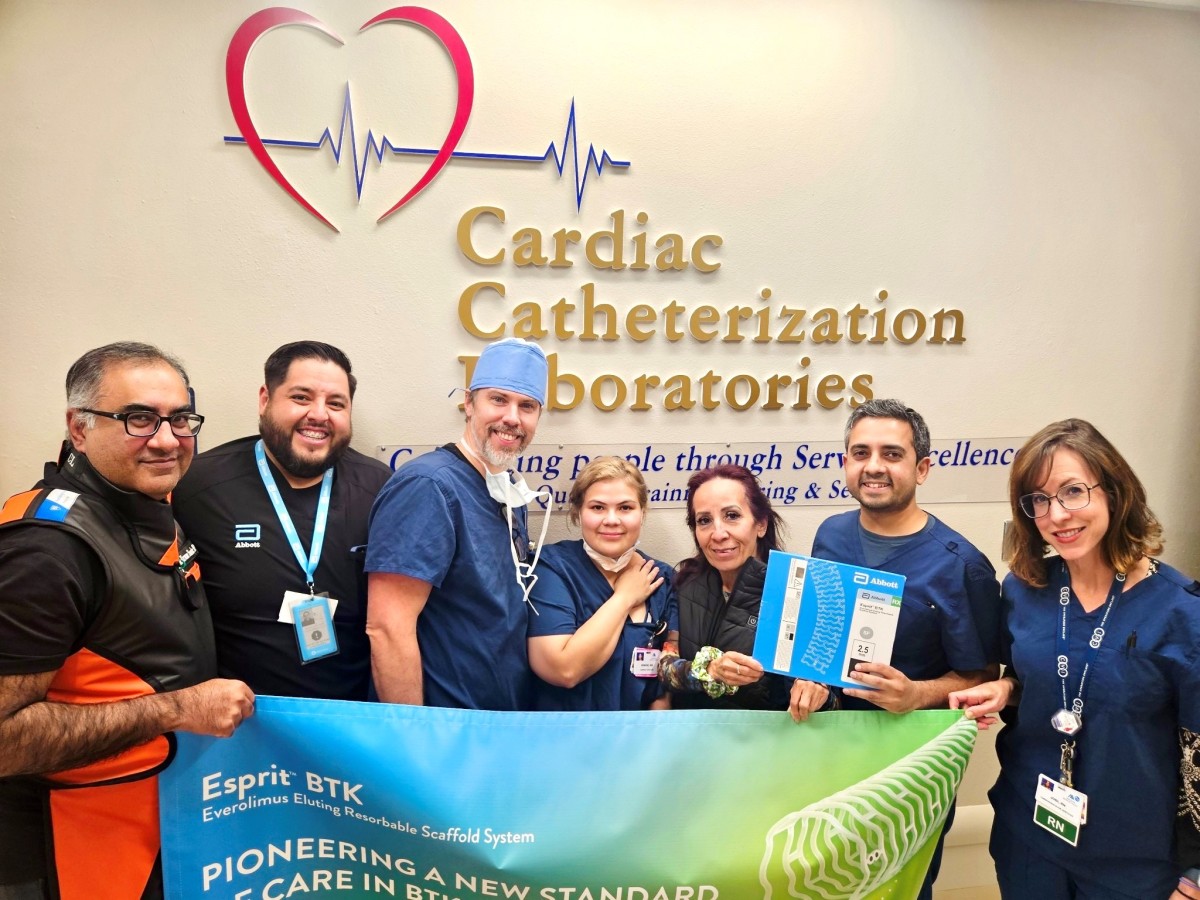MMC Makes History With Revolutionary Procedure For Peripheral Artery Disease
December 9, 2024

(Las Cruces, NM – December 9, 2024) – Memorial Medical Center continues to be a pioneer in cardiovascular services and technology, today becoming the first hospital in all of New Mexico and El Paso to place a revolutionary device that helps the most vulnerable patients with peripheral artery disease (PAD) below the knee. Interventional Cardiologist Udit Bhatnagar, MD, FACC, FSCAI, and Memorial’s Cath Lab team successfully implanted the newly FDA-approved Esprit BTK Scaffold to treat a patient’s critical limb ischemia (CLI).
Without intervention, patients with CLI often end up with progressive amputations and a shortened lifespan. The Esprit BTK System from Abbott is a first-of-its-kind dissolvable stent to treat PAD below the knee. This device delivers critical medication to the area of blockage and then slowly absorbs over time, leaving nothing behind.
The device is implanted during a catheter-based minimally invasive procedure via a small incision in the leg. Once the blockage is open, the Esprit BTK scaffold helps heal the vessel and provides support for approximately three years until the vessel is strong enough to remain open on its own.
PAD is highly prevalent, yet many people have never heard of the condition. More than 20 million people in the U.S. are living with this painful disease and only 10 percent of those people have been diagnosed. In severe cases of PAD, blocked vessels reduce blood flow to the lower extremities, often leading to severe pain, non-healing wounds, and, in some cases, the need for limb amputation.
"PAD is a dangerous condition that is complex to treat, with limited approved treatment options," said Dr. Bhatnagar. "This new technology offers a new option for treating people with the most severe forms of PAD, helping to heal blood flow and potentially salvage limbs."
Until today, there were no stents or drug-coated balloons approved for use below the knee in the U.S. The standard of care has been balloon angioplasty, which relies on a small balloon delivered via a catheter to the blockage to compress it against the arterial wall, opening the vessel and restoring blood flow. However, blockages treated only with balloon angioplasty have poor short- and long-term results, and in many instances the vessels become blocked again, requiring additional treatment.
Learn about our cardiovascular services and find a provider: https://www.mmclc.org/heart
